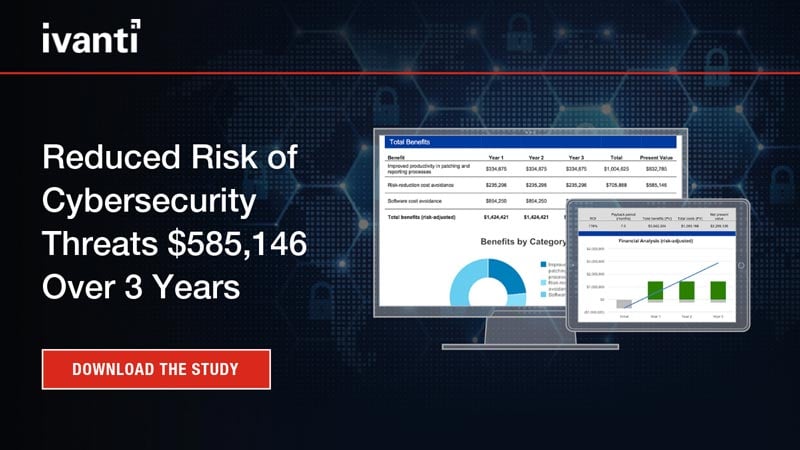Patching in Review – Week 16 of 2019
It’s hard to believe it has only been one week since Patch Tuesday in wake of the numerous conflicts found with specific antivirus titles that we detailed in last week’s post.
Right after Patch Tuesday, a new vulnerability was disclosed where an attacker can gain file read permissions to exfiltrate a system. According to TechRadar, security researcher John Page published the details on April 10th after the vulnerability wasn’t remediated in this month’s release. Microsoft has already responded to this public disclosure saying that a fix will be considered in the near future.
It looks like the time has come for the next release of Windows 10 now available on MSDN. According to ZDNet, this version has been released to the developer network ahead of VLSC—this time to expand further testing to prevent the myriad issues that were found in the 1809 release. WindowsCentral has a great summary of all the new features within this release, including the new Windows Sandbox to securely open suspicious applications within an isolated environment.
Security Releases
Oracle released its April Critical Patch Update Advisory this week that covers a total of 297 vulnerabilities!
- Once again, Java’s list of CVEs is relatively short, with only five vulnerabilities remediated, but the severity is much higher with a maximum CVSS score of 9.0. CVE-2019-2699 details a vulnerability related to the Windows DLL component where an attacker can use Java Web applications to exploit an endpoint. This is the first Java SE release that adheres to the new License Agreement for commercial use, so be sure to ensure your compliance.
- VirtualBox 6.0.6 remediates 12 CVEs this quarter, with seven of the vulnerabilities receiving a CVSS score of 8.8. The two exploits discovered during day 1 of Pwn2Own 2019 received CVEs CVE-2019-2722 and CVE-2019-2723 where the Fluoroacetate team successfully escaped the virtual client to control the host.
Apache Tomcat also released updates for its three supported branches to remediate a discovered vulnerability through EU-FOSSA. Tomcat 9.0.18, 8.5.40, and 7.0.93 remediate CVE-2019-0232, where an attacker may execute unexpected commands directly on the operating system through the product’s required Java Runtime.
Third-Party Updates
While this week is filled with a new Windows 10 release and numerous security releases, other vendors were also supplying non-security patches for their products. Make note of the list below as you continue to roll out patches cautiously from last week:
|
Software Title |
Ivanti ID |
Ivanti KB |
|
Adobe Acrobat DC 15.006.30495 |
ARDC19-003 |
QADC1500630495 |
|
Adobe Acrobat DC 17.011.30140 |
ARDC19-002 |
QADC1701130140 |
|
Adobe Acrobat DC Continuous 19.010.20100 |
ARDC19-001 |
QADC1901020100 |
|
Azure Information Protection Client 1.48.204.0 |
AIPC-008 |
QAIP1482040 |
|
GOM Player 2.3.40.5302 |
GOM-025 |
QGOM23405302 |
|
Google Drive File Stream 30.1.36.2348 |
GDFS-012 |
QGS301362348 |
|
GoToMeeting 8.42.0 |
GOTOM-062 |
QGTM8420 |
|
Mouse and Keyboard Center 11.1 |
MMKC-004 |
QMKC1110 |
|
Node.JS 11.14.0 (Current) |
NOJSC-014 |
QNODEJSC11140 |
|
Node.JS 8.16.0 (LTS Lower) |
NOJSLL-005 |
QNODEJSLL8160 |
|
Opera 60.0.3255.56 |
OPERA-209 |
QOP600325556 |
|
PeaZip 6.7.2 |
PZIP-014 |
QPZIP672 |
|
Plex Media Player 2.32.0 |
PLXP-035 |
QPLXP2320973 |
|
Skype 8.43.0.56 |
SKYPE-156 |
QSKY843056 |
|
Splunk Universal Forwarder 7.2.6 |
SPLUNKF-037 |
QSPLUNKF7260 |
|
TeamViewer 14.2.8352 |
TVIEW-046 |
QTVIEW14283520 |
|
TortoiseHG 4.9.1 |
TOHG-021 |
QTOHG491 |
|
Visual Studio Code 1.33.1 |
MSNS19-0412-CODE |
QVSCODE1331 |
|
Zoom Client 4.4.52570 |
ZOOM-021 |
QZOOM44525700415 |
|
Zoom Outlook Plugin 4.7.52180.0404 |
ZOOMOUT-008 |
QZOOMO4752180 |

